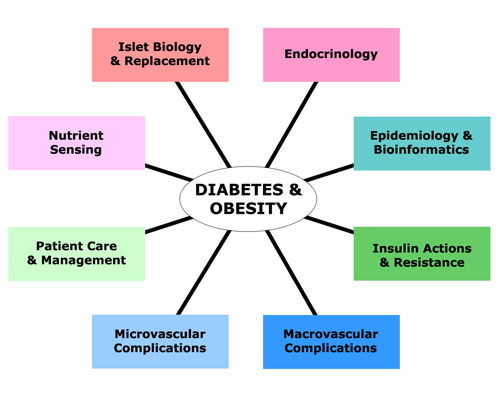Diabetes and Obesity
Obesity is a medical condition which results from the accumulation of excess fat within the body. Obesity is thought to trigger the changes to the body's metabolism. It adds pressure on body's ability to use insulin, to properly control blood sugar levels, and therefore they are more likely to develop diabetes. In addition abdominal fat influences fat cells to release ‘pro-inflammatory’ chemicals, which can reduce insulin sensitivity by disrupting the function of insulin responsive cells and their ability to respond to insulin. Obesity also causes pre-diabetes, a metabolic condition that almost always develops into type 2 diabetes.
Obesity has many causes such as gender, genes, age, psychological makeup, environmental factors and socioeconomic makeup. Certain medical conditions and medications can promote or cause obesity, although these are much less common causes of obesity than inactivity and overeating. Some examples of these are depression, certain medications (examples are antidepressants, control pills, steroids), Polycystic ovarian syndrome, Prader-Willi syndrome. The main goal of obesity treatment is to stay at a healthy weight. All weight-loss programs focus on physical activity and eating habits.

Recommended: - Diabetes conferences | obesity conferences | Endocrinology conferences | diabetes conferences 2021 |world congress on diabetes | diabetes meetings | endocrinology meetings | world diabetes congress |